Exploring the Journey of ‘Better Man’: A Deep Dive into Robbie Williams’ New Song
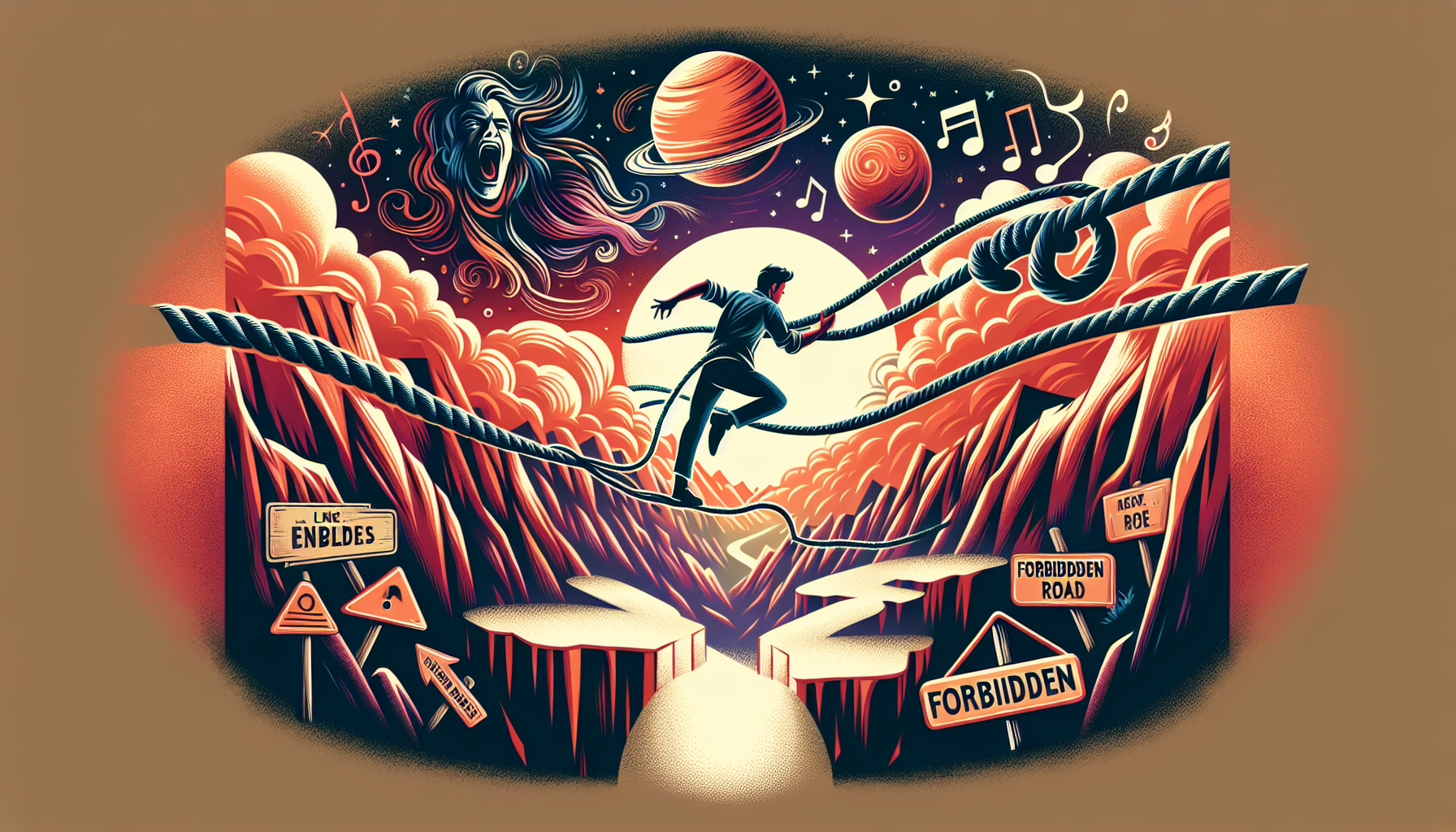
Robbie Williams’ latest single ‘Better Man’ encapsulates the essence of personal struggle and triumph. This blog explores the themes and emotions expressed in the lyrics, shedding light on the artist’s journey and the profound messages behind his music.
Table of Contents
- Introduction to ‘Better Man’
- The Evolving Truth: A Journey of Self-Discovery
- Empowerment Through Choices
- Mastering One’s Fate: The Painter and the Paint
- Finding Light in Darkness: Losing Your Mind
- The Reflection of Regret: Acknowledging Poor Decisions
- Contradictions of Life: The Cure and the Affliction
- Resilience: Whatever It Takes
- The Continuous Search for Purpose
- The Question of Love: Vulnerability in Relationships
- Conclusion: Embracing the Journey of ‘Better Man’
- FAQs about ‘Better Man’ and Robbie Williams
Introduction to ‘Better Man’
‘Better Man’ is more than just a song; it’s a narrative of exploration and self-discovery. Robbie Williams invites listeners into a personal journey that reflects the universal quest for meaning. The lyrics resonate with anyone who has ever felt lost or uncertain about their path.
The song’s imagery, such as “a long, a forbidden rope,” suggests a longing for exploration and understanding. It speaks to the desire to push boundaries and seek answers, a theme that will unfold throughout the track.
The Forbidden Road: A Metaphor for Life’s Journey
The concept of a “forbidden road” serves as a powerful metaphor for life’s journey. It signifies the paths we are often told to avoid, yet feel drawn to explore. This tension between caution and curiosity is palpable in the lyrics.
Williams reflects on the allure of the unknown, emphasizing that it is through these uncharted territories that we often find our true selves. The forbidden road represents the risks we take to uncover our potential and the lessons learned along the way.

The Quest for Knowledge and Understanding
In ‘Better Man,’ the pursuit of knowledge is a recurring theme. The line “I had to know where does it go” captures this yearning for understanding. It speaks to the innate human desire to seek out truths, even when they may lead us into uncomfortable or challenging situations.
This quest is not just about acquiring facts; it’s about personal growth and transformation. Williams acknowledges the importance of this journey, suggesting that the answers we seek often lie beyond our comfort zones. The willingness to confront the unknown is essential for anyone striving to be a better version of themselves.

Fearlessness: Running Towards the Unknown
Fearlessness is a central theme in ‘Better Man.’ The act of running towards the unknown embodies courage and determination. Williams captures the essence of moving forward despite uncertainties, a sentiment that resonates deeply with many.
This fearlessness is not the absence of fear; rather, it’s the ability to act in spite of it. The lyrics reflect a commitment to facing challenges head-on, reinforcing the idea that true growth often requires stepping outside of familiar boundaries.

The Desire for Identity: Not Being a Nobody
Identity is a crucial element in the song, highlighted by the line “Don’t want to be a nobody.” This desire for recognition and purpose is universal, echoing the struggles many face in defining who they are.
Williams delves into the need for validation and the fear of insignificance. The quest for identity often leads to introspection and self-discovery. He challenges listeners to confront their fears, ultimately suggesting that everyone has the potential to carve out their own identity.

Self-Perception: Addressing the Judgments
Self-perception plays a pivotal role in ‘Better Man.’ Williams addresses the judgments we face from others and the internal struggles that accompany them. The line “Why do you look at me that way?” encapsulates the feelings of vulnerability that come with scrutiny.
This reflection on self-image is vital in understanding how we see ourselves versus how others perceive us. Williams encourages listeners to embrace their true selves, regardless of external opinions. It’s a reminder that self-acceptance is key to personal growth.

The Evolving Truth: A Journey of Self-Discovery
The journey of self-discovery is an ongoing process, often marked by evolving truths. In ‘Better Man,’ Williams emphasizes the importance of recognizing that our understanding of ourselves can shift over time. This evolution is not just about personal growth; it’s about embracing the complexity of our identities.
As we navigate through life, we confront various truths that shape our perspectives. Williams suggests that acknowledging these changes is vital for growth. The realization that we are not static beings allows us to adapt and redefine who we are.

Embracing Change
Change is a central theme in self-discovery. Williams encourages listeners to embrace the fact that our lives and identities are fluid. Each experience, whether positive or negative, contributes to our growth.
- Recognizing past mistakes as learning opportunities.
- Understanding that our beliefs can evolve.
- Accepting that self-identity may shift with new experiences.
By embracing change, we open ourselves to new possibilities and insights. This mindset fosters resilience and adaptability, qualities essential for personal development.

Empowerment Through Choices
Williams highlights the power of choice in shaping our destinies. The line “Life is the choices that we make” underscores the significance of taking responsibility for our actions. Each decision we make has the potential to influence our lives profoundly.
Empowerment comes from recognizing that we are the architects of our own fate. By making conscious choices, we can navigate our paths with intention and purpose. This theme resonates deeply, inspiring listeners to take charge of their lives.

Understanding Consequences
Every choice comes with its own set of consequences. Williams reminds us that understanding these outcomes is crucial. The lyrics reflect an awareness of the impact our decisions have on ourselves and those around us.
- Consider the long-term effects of your choices.
- Recognize the interconnectedness of decisions.
- Learn from past experiences to inform future choices.
By acknowledging the consequences of our actions, we can make more informed choices that align with our values and aspirations.

Mastering One’s Fate: The Painter and the Paint
The metaphor of “the painter and the paint” serves as a powerful reminder of our role in shaping our lives. Williams illustrates that we are both the creators and the creations of our destinies. This duality encourages us to take an active role in defining our paths.
The act of painting symbolizes creativity and expression. Just as a painter chooses colors and techniques, we have the autonomy to choose how we respond to life’s challenges. This perspective empowers us to take control of our narratives.
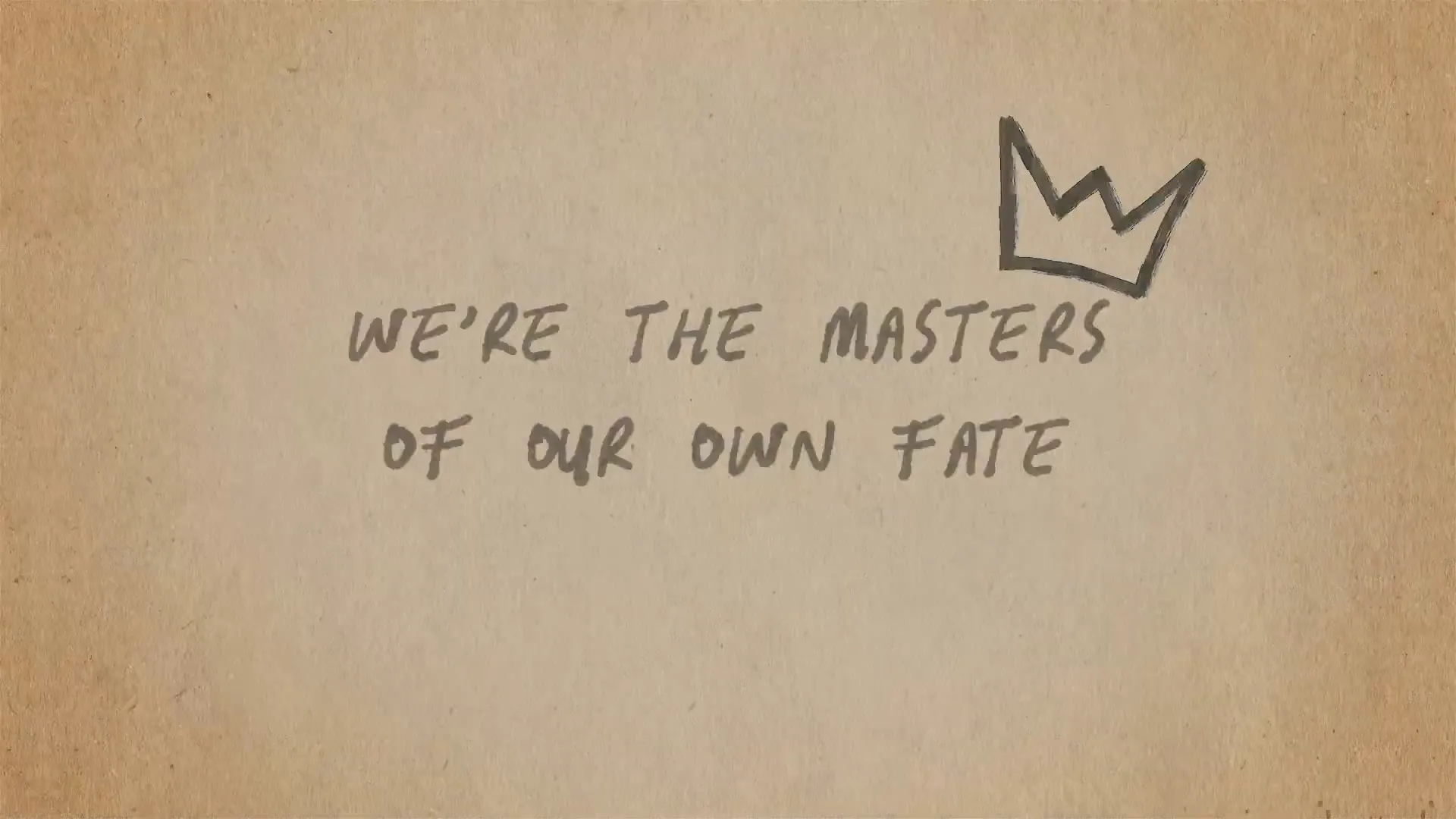
Creating Your Masterpiece
Each life is a unique masterpiece. Williams encourages us to embrace our individuality in the creation process. By recognizing our strengths and weaknesses, we can craft a life that reflects our true selves.
- Identify your passions and interests.
- Utilize your experiences as inspiration.
- Be open to experimenting with different paths.
As we explore our creativity, we can begin to master our fate, creating a life that resonates with our authentic selves.

Finding Light in Darkness: Losing Your Mind
Williams poignantly addresses the struggle of losing one’s mind in the pursuit of clarity. The line “You need to lose your mind to get back to the light” suggests that chaos can sometimes lead to enlightenment. This paradox highlights the transformative power of adversity.
In moments of darkness, we often uncover hidden strengths and insights. Williams encourages us to embrace these challenging experiences as part of our journey toward self-discovery. It is through navigating turmoil that we can emerge stronger and more enlightened.

The Role of Adversity
Adversity plays a crucial role in shaping our perspectives. Williams emphasizes that facing challenges can lead to profound growth. The struggles we endure often provide the lessons we need to evolve.
- Reflect on past challenges and their impacts.
- Recognize the strength gained through adversity.
- Use difficult experiences as catalysts for change.
By acknowledging the role of adversity in our lives, we can cultivate resilience and emerge from darkness into the light.
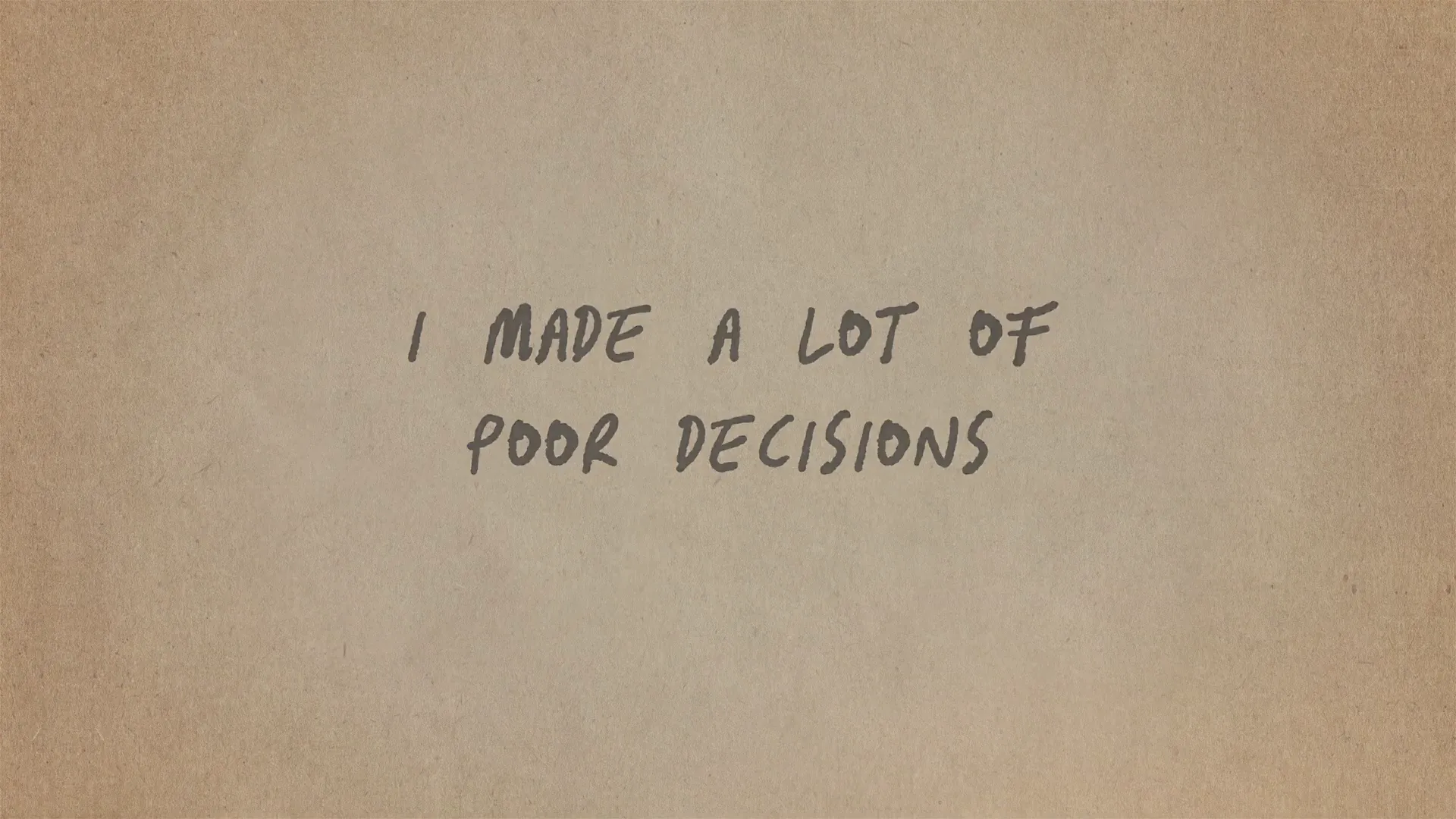
The Reflection of Regret: Acknowledging Poor Decisions
Regret is a universal emotion that often accompanies the journey of self-discovery. Williams candidly discusses his experiences with regret, stating, “I made a lot of poor decisions.” This acknowledgment is essential for personal growth.
Reflecting on our past choices allows us to learn invaluable lessons. Williams suggests that recognizing our mistakes is the first step toward making amends and improving ourselves. This reflection is not about dwelling on the past but rather using it as a foundation for future growth.

Transforming Regret into Growth
Turning regret into a positive force is crucial. Williams encourages us to view our past decisions as opportunities for growth. By embracing our imperfections, we can foster self-compassion and understanding.
- Identify specific regrets and their lessons.
- Focus on actions you can take to rectify past mistakes.
- Embrace the idea that growth often comes from setbacks.
This transformation allows us to create a more fulfilling life, free from the weight of regret.

Contradictions of Life: The Cure and the Affliction
Life is filled with contradictions, a theme that Williams explores through the phrase “I’m a living contradiction to curing the affliction.” This statement encapsulates the complexity of the human experience, where healing and struggle coexist.
The duality of existence reminds us that we can hold conflicting emotions simultaneously. Williams invites us to embrace these contradictions as part of our journey. Understanding that we are not defined by a single narrative allows for a more nuanced perspective on life.
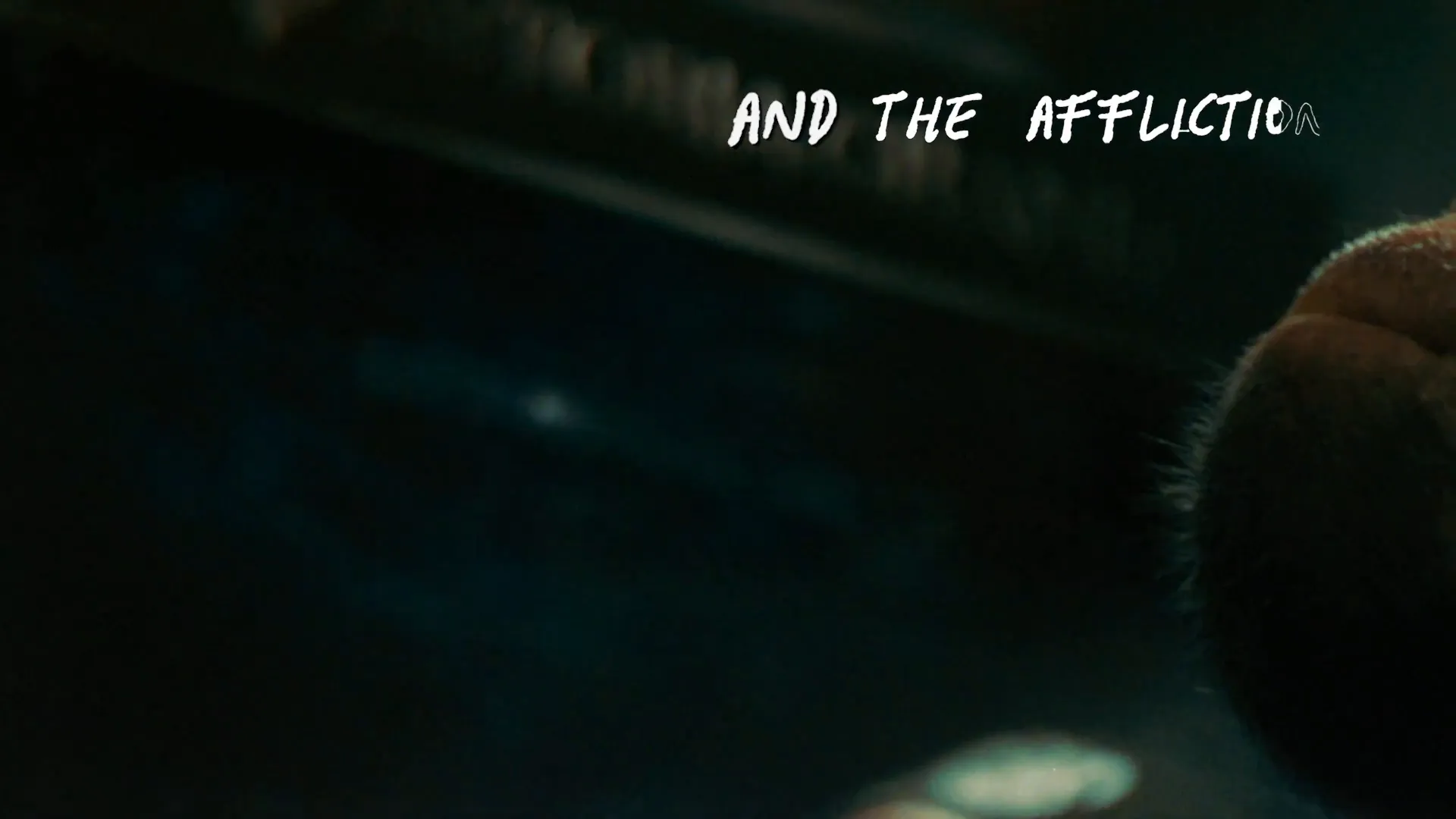
Finding Balance in Contradictions
Finding balance amidst contradictions is essential for personal growth. Williams suggests that acknowledging both sides of our experiences enriches our understanding of ourselves. This balance fosters empathy and compassion toward others.
- Recognize the coexistence of joy and sorrow.
- Embrace the complexity of your emotions.
- Seek harmony between conflicting aspects of your life.
By navigating these contradictions, we can cultivate a deeper understanding of our humanity and the world around us.

Resilience: Whatever It Takes
Resilience is a defining theme in ‘Better Man.’ Williams embodies the spirit of perseverance, emphasizing the need to push through challenges. The phrase “whatever it takes” encapsulates this determination to overcome obstacles and emerge stronger.
This resilience is not merely about enduring hardship; it’s about thriving in the face of adversity. Williams encourages listeners to adopt a mindset that embraces struggle as a necessary part of growth. By doing so, we can find strength in our vulnerabilities.
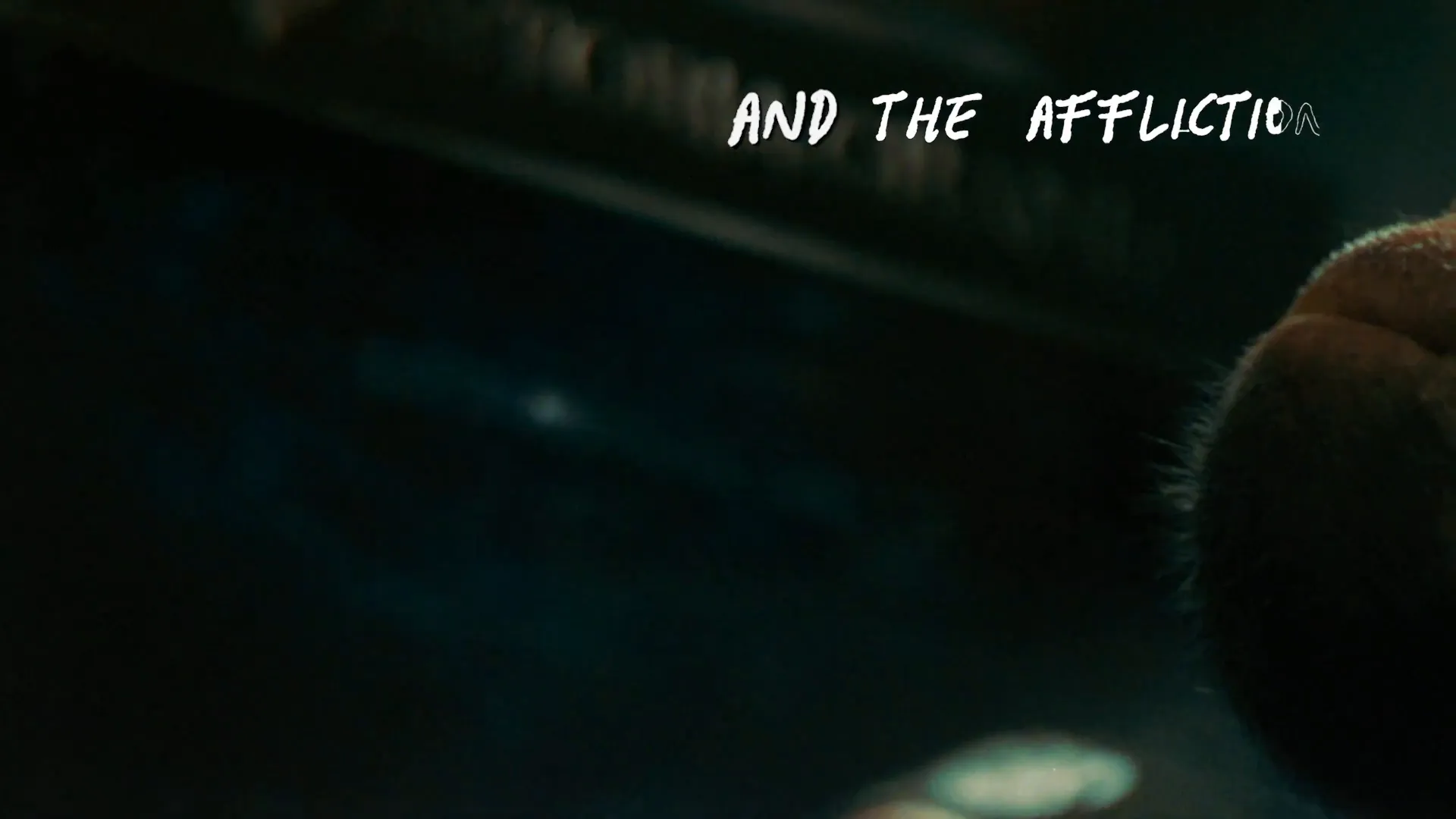
The Power of Determination
Determination fuels resilience. Williams illustrates that the journey toward becoming a better version of ourselves requires unwavering commitment. This determination often manifests in small, everyday choices that accumulate over time.
- Set clear goals to maintain focus.
- Practice self-discipline to stay the course.
- Celebrate small victories to build momentum.
Every step taken, no matter how small, contributes to our overall growth and resilience.

Building a Support System
No one embarks on a journey alone. Williams highlights the importance of surrounding ourselves with supportive individuals. A strong support system can provide encouragement, guidance, and a sense of belonging.
- Identify people who uplift and inspire you.
- Engage in open conversations about struggles.
- Offer support to others in their journeys.
This reciprocal support fosters resilience and strengthens our ability to face life’s challenges together.
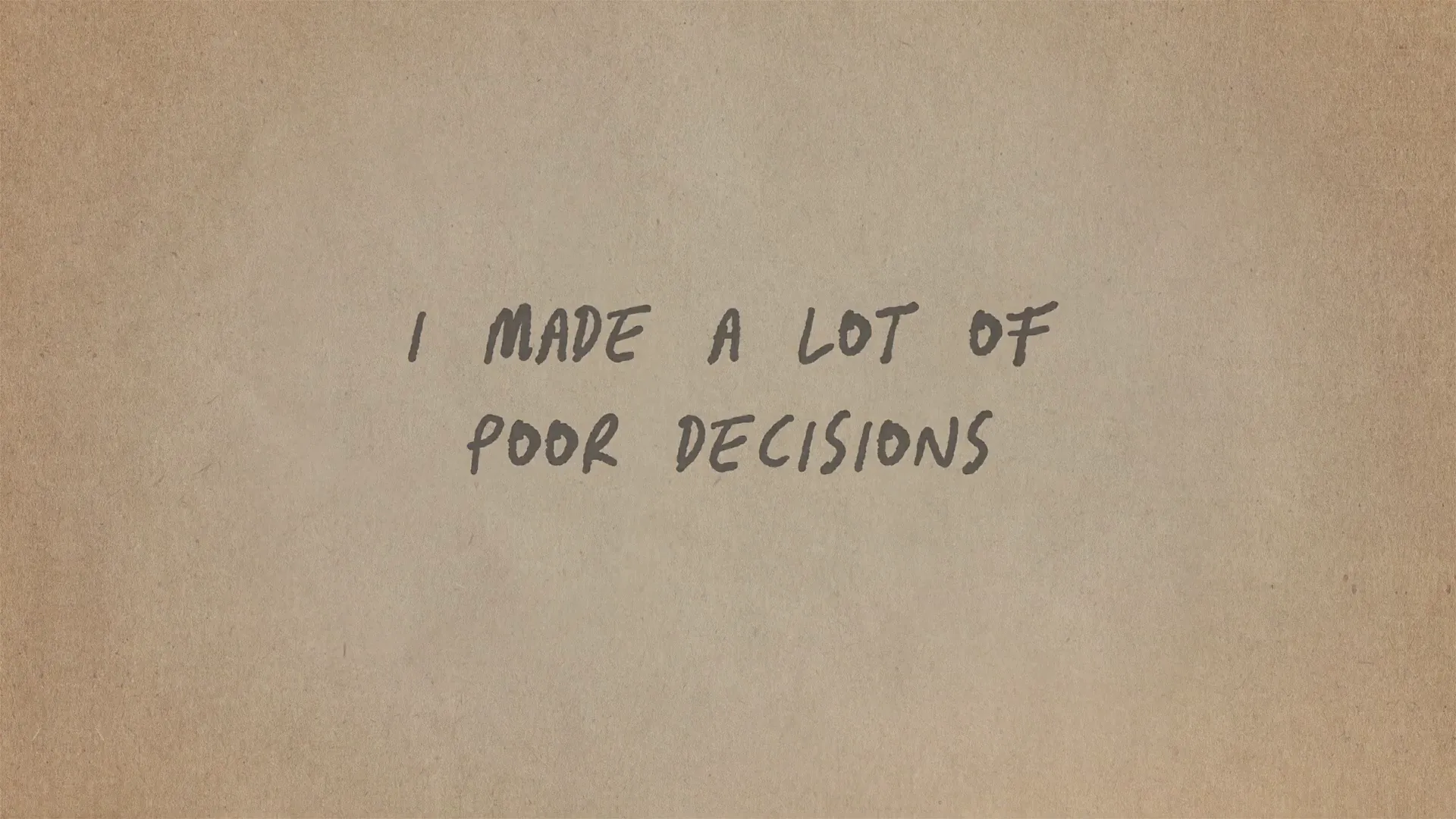
The Continuous Search for Purpose
The search for purpose is a recurring motif in ‘Better Man.’ Williams reflects on the human desire to find meaning in life. This quest can be both daunting and liberating, often leading us to explore uncharted territories within ourselves.
Understanding our purpose is not a destination but a journey. Williams suggests that this exploration requires introspection and openness to change. Acknowledging that our purpose may evolve over time is essential in this pursuit.

Embracing the Journey
Embracing the journey toward purpose involves accepting uncertainty. Williams encourages listeners to be comfortable with not having all the answers. This acceptance can foster a sense of freedom, allowing us to explore different paths without fear of failure.
- Engage in self-reflection to understand your values.
- Explore new interests and passions.
- Stay open to changing your course when needed.
By embracing the journey, we can uncover layers of meaning that enrich our lives.

Finding Meaning in Experiences
Every experience contributes to our understanding of purpose. Williams emphasizes that even challenging moments can provide valuable insights. By reflecting on our experiences, we can extract meaning that informs our sense of direction.
- Keep a journal to document your thoughts and feelings.
- Reflect on how past experiences have shaped your beliefs.
- Identify patterns in your life that resonate with your purpose.
This practice of reflection can illuminate our paths and help us navigate toward a fulfilling life.

The Question of Love: Vulnerability in Relationships
Love and vulnerability are pivotal themes in ‘Better Man.’ Williams explores the complexities of relationships, highlighting the fear of rejection and the desire for acceptance. The poignant question, “So do you love me now?” illustrates this vulnerability.
This vulnerability is a double-edged sword; it can lead to profound connections or painful heartache. Williams encourages listeners to embrace vulnerability as a strength, suggesting that true intimacy requires openness and honesty.

Building Trust Through Vulnerability
Trust is foundational in any relationship. Williams posits that vulnerability fosters deeper connections. When we allow ourselves to be seen, we invite others to do the same.
- Share your thoughts and feelings authentically.
- Practice active listening to understand your partner better.
- Be willing to show your imperfections.
This mutual vulnerability can strengthen bonds and cultivate a safe space for love to flourish.

Navigating Fear of Rejection
The fear of rejection often inhibits our ability to love fully. Williams acknowledges this fear, urging listeners to confront it. Embracing the possibility of rejection can lead to greater emotional resilience.
- Recognize that rejection is a natural part of relationships.
- Focus on self-acceptance to build confidence.
- Reframe rejection as an opportunity for growth.
By navigating this fear, we can open ourselves to more authentic connections.

Conclusion: Embracing the Journey of ‘Better Man’
‘Better Man’ is a powerful anthem of resilience, exploration, and vulnerability. Williams invites us to embrace our journeys, recognizing that growth often stems from our struggles. By confronting our fears and uncertainties, we can uncover our true selves.
This song serves as a reminder that the path to becoming a better version of ourselves is not linear. It is filled with twists, turns, and invaluable lessons. Embracing this journey allows us to live authentically and purposefully.

FAQs about ‘Better Man’ and Robbie Williams
What are the main themes of ‘Better Man’?
The main themes include resilience, the search for purpose, vulnerability in relationships, and the journey of self-discovery.
How does Robbie Williams convey vulnerability in the song?
Williams conveys vulnerability through poignant lyrics that express feelings of uncertainty, fear of rejection, and the desire for love and acceptance.
What does the phrase “whatever it takes” signify in the song?
This phrase embodies the determination to overcome challenges and the commitment to personal growth, regardless of the obstacles faced.
How can listeners apply the song’s messages to their own lives?
Listeners can reflect on their struggles, embrace vulnerability, and actively pursue their purpose with resilience and determination.
















